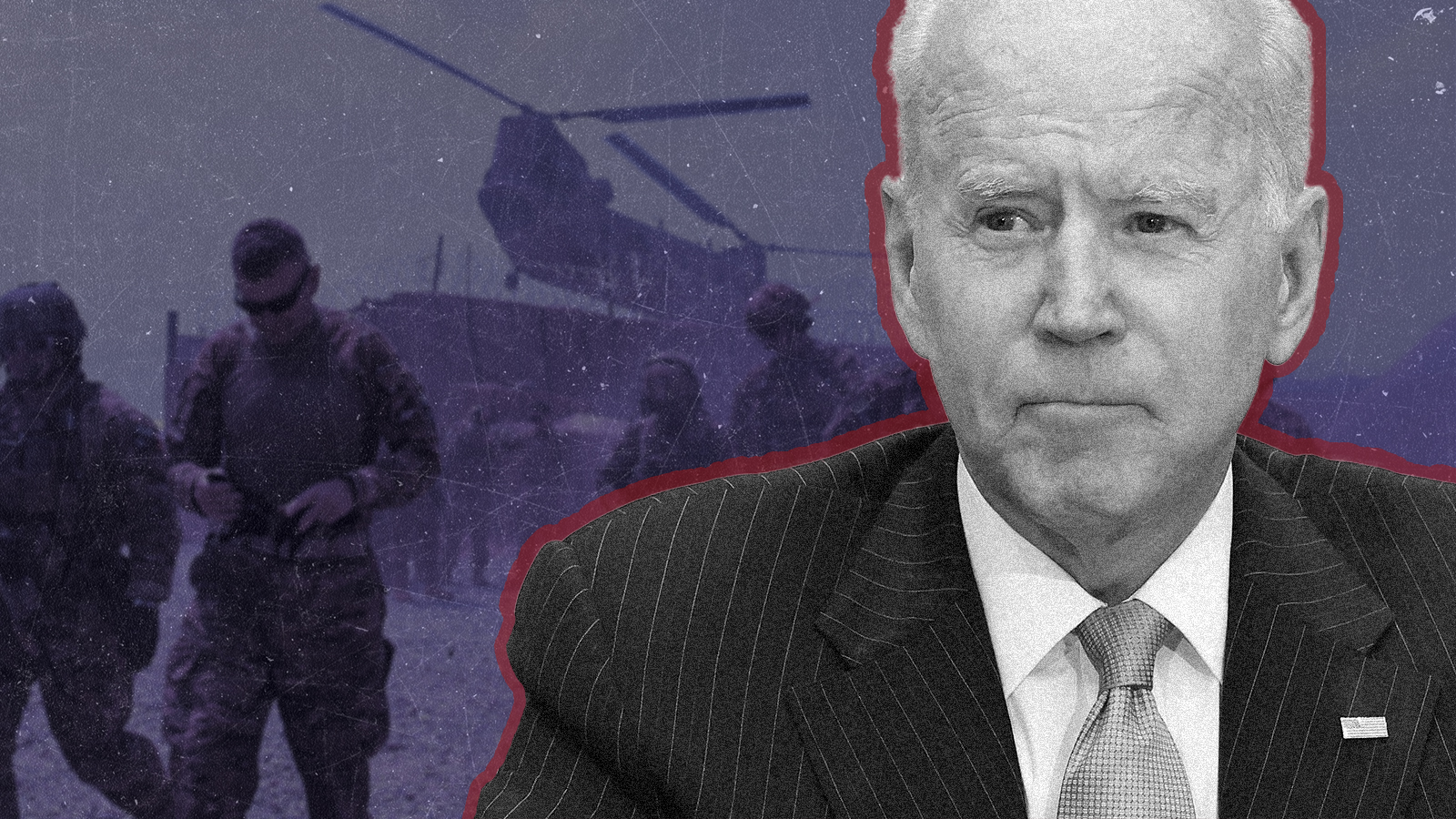What Biden understands about Afghanistan


A free daily email with the biggest news stories of the day – and the best features from TheWeek.com
You are now subscribed
Your newsletter sign-up was successful
As the U.S. prepares to exit Afghanistan after 20 years, critics of the policy shift are hurling a range of accusations against it. The two most potent are that withdrawal will send a message of American defeatism to the world and that it will be a morally appalling act of indifference to the fate of the Afghan people, who will be deprived by a resurgent Taliban of the chance to determine their own political future.
Good thing Joe Biden understands more about the situation in Afghanistan than his critics.
What could be more compelling evidence of American defeatism and weakness than spending 20 years playing whack-a-mole with the Taliban with no evidence whatsoever that we can decisively prevail against them? Or propping up the Afghan government for those same two decades because it's too ineffectual to rule the country on its own? Who could possibly think that China, Russia, or any other adversary would be impressed with our willingness to continue like this with no end in sight when what it really does is endlessly demonstrate our impotence?
The Week
Escape your echo chamber. Get the facts behind the news, plus analysis from multiple perspectives.

Sign up for The Week's Free Newsletters
From our morning news briefing to a weekly Good News Newsletter, get the best of The Week delivered directly to your inbox.
From our morning news briefing to a weekly Good News Newsletter, get the best of The Week delivered directly to your inbox.
As for Afghan self-determination, all Americans of good will wish the country's people the best. Yet self-determination requires precisely that: a country's ability to determine its fate for itself. Afghanistan is not exercising self-determination if American troops are the ones performing one of the essential functions of government — namely, keeping order and putting down an insurgency. The country has been embroiled in a civil war for decades. Our presence has given one side an advantage for quite a long time now. If when we withdraw this side crumbles in a matter of weeks or months, that's a sign that we were the ones determining the country's fate, not the people of Afghanistan.
Judging from his remarks on Thursday afternoon, Joe Biden understands both of these points very well, and far better than his critics. I, for one, am grateful that he does.
A free daily email with the biggest news stories of the day – and the best features from TheWeek.com
Damon Linker is a senior correspondent at TheWeek.com. He is also a former contributing editor at The New Republic and the author of The Theocons and The Religious Test.
-
 6 of the world’s most accessible destinations
6 of the world’s most accessible destinationsThe Week Recommends Experience all of Berlin, Singapore and Sydney
-
 How the FCC’s ‘equal time’ rule works
How the FCC’s ‘equal time’ rule worksIn the Spotlight The law is at the heart of the Colbert-CBS conflict
-
 What is the endgame in the DHS shutdown?
What is the endgame in the DHS shutdown?Today’s Big Question Democrats want to rein in ICE’s immigration crackdown
-
 Epstein files topple law CEO, roil UK government
Epstein files topple law CEO, roil UK governmentSpeed Read Peter Mandelson, Britain’s former ambassador to the US, is caught up in the scandal
-
 Iran and US prepare to meet after skirmishes
Iran and US prepare to meet after skirmishesSpeed Read The incident comes amid heightened tensions in the Middle East
-
 Israel retrieves final hostage’s body from Gaza
Israel retrieves final hostage’s body from GazaSpeed Read The 24-year-old police officer was killed during the initial Hamas attack
-
 China’s Xi targets top general in growing purge
China’s Xi targets top general in growing purgeSpeed Read Zhang Youxia is being investigated over ‘grave violations’ of the law
-
 Panama and Canada are negotiating over a crucial copper mine
Panama and Canada are negotiating over a crucial copper mineIn the Spotlight Panama is set to make a final decision on the mine this summer
-
 Why Greenland’s natural resources are nearly impossible to mine
Why Greenland’s natural resources are nearly impossible to mineThe Explainer The country’s natural landscape makes the task extremely difficult
-
 Iran cuts internet as protests escalate
Iran cuts internet as protests escalateSpeed Reada Government buildings across the country have been set on fire
-
 US nabs ‘shadow’ tanker claimed by Russia
US nabs ‘shadow’ tanker claimed by RussiaSpeed Read The ship was one of two vessels seized by the US military
